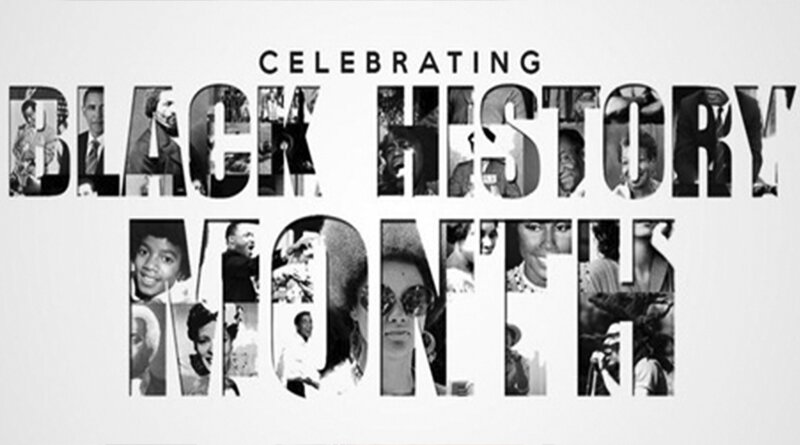Black History Month And Military (Continued)
February is Black History Month and is a good time to recall the vast contributions African-Americans have made throughout the nation's military history.
Most are aware of theTuskegee Airmen and their heroic contributions during World War II. Some may be familiar with the Buffalo Soldiers of the 9th and 10th Cavalry and the 38th, 39th, 40th, and 41 st Infantry Regiments (later consolidated and renamed 24th and 25th Infantry) that fought during the Indian Wars and performed a primary role in America’s western expansion following the Civil War.
But there are many more examples of African-American military contributions in the defense of this nation, which should be remembered during Black History Month.
African-Americans have served in every conflict in American history. In 1689, Black militia members fought against French imperialism in the American colonies. Black militia members also served in Queen Anne’s War, from 1702 to 1713, and the French and Indian War, from 1754 to 1763. Barzilai Lew fought as a member of the Massachusetts militia during this conflict and later saw action in the Battle of Bunker Hill during the American Revolution. By 1770, African-Americans were vital elements of several Northern colonial militias. On March 5, 1770, Crispus Attucks, a runaway slave turned sailor, and four other colonists were killed in the Boston Massacre. In Boston, Mr. Attucks was the first man killed by the British Guard, as colonists protested against what were called “British crimes” for being a colonist. He became the first casualty of the American Revolution. African-Americans took part in the battles of Concord and Lexington, Mass., in April 1775, and in May, African-Americans helped Ethan Allen and the Green Mountain Boys capture Fort Ticonderoga in New York. More than 5,000 African-Americans served in the Continental Army and nearly 5,000 more served with state militias during the Revolutionary War. African-Americans also served as spies and undercover agents, for which several were recognized by Congress for their bravery.
As the 18th century drew to a close, Congress enacted legislation restricting enlistments in the militia to white male citizens.This restriction would be short-lived, as African-Americans continued to serve in the naval forces in the War of 1812. During the conflict, African-Americans served with distinction during important battles, including the Battle of Lake Erie, in which 10 to 25 percent of Admiral Oliver H. Perry’s men were Black, and the Battle of New Orleans, two weeks after the signing of theTreaty of Ghent, which ended the war.
Following the war, restrictions on African-American enlistments returned, as Congress set manpower limits on the size of the Army. Free Blacks, meanwhile, moved west, seeking opportunity, and in the 1830s fought alongside Texans seeking independence from Mexico.
Despite facing many obstacles, African-Americans continued to serve during the Civil War. This provided the impetus for the permanent presence of Blacks in the peacetime military. Twenty-five African-Americans received the Medal of Honor for their actions in combat. These twenty-five men included seven sailors, fifteen soldiers assigned to the “United States Colored Troops,” and three assigned to other Army units.
In 1866, the U.S. Army established the 9th and 10th Cavalry Regiments and the 38th, 39th, 40th, and 41 st Infantry Regiments and stationed them in the growing western territories. These Buffalo Soldiers, a name given to them by Cherokee tribes, provided invaluable service during the Indian Wars and the Spanish American War in 1898. During these two conflicts, twenty-four African-American servicemen received the Medal of Honor.
In fewer than 20 years, America was again at war, fighting for the first time on European soil. As in the past, African-Americans had to overcome bigotry within military leadership to participate fully. Eugene Jacques Bullard, a highly decorated African-American serving with the French Air Service, summed up this issue with his famous quote,“Tout le sang qui coule rouge; all blood is red.”
Despite his and the accomplishments of many like him, acceptance of Blacks as equals in the military was slow.
On April 6, 1917, the United States declared war on Germany. During the course of the conflict, 367,000 African-American soldiers served, 1,400 of those as commissioned officers. On September 28, 1918, Cpl. Freddie Stowers, of the 371st Infantry Regiment, led his squad to destroy a group of enemy soldiers. He was leading his troops in an attack when he fell to enemy fire. Although he was mortally wounded he continued to motivate his squad until he passed away. Inspired by his bravery and leadership, Corporal Stowers’ squad continued to fight and took over their enemy target.
Corporal Stowers received the Medal of Honor for his heroism. He was the only African-American to receive the country’s highest military award in World War I.
On July 26, 1948, President Harry S. Truman issued Executive Order 9981, mandating the desegregation of the United States Armed Forces. Efforts to improve the treatment of African-Americans and other minorities in the military services came to the forefront of personnel policy. Despite remnants of discrimination, African-Americans continued to serve with distinction. In the second half of the 20th Century, African-Americans broke barriers in all services.
Benjamin O. Davis, Sr. became the first African-American flag officer when he was promoted to brigadier general, temporarily, on October 25, 1940. He retired on July 31, 1941 and was recalled to active duty and promoted to brigadier general on August 1, 1941.
Benjamin O. Davis Jr. became the Air Force’s first African-American general officer when he was promoted to brigadier general, temporarily, October 27, 1954.
Samuel L. Gravely Jr. became the U.S. Navy’s first African-American to achieve flag rank when he was promoted to rear admiral in July 1971. On February 23, 1979, the United States Marine Corps promoted Frank E. Peterson to brigadier general, making him the Corps’ first African-American flag officer.
Of America’s astronauts, sixteen are African-American and four are African-American women.
From Barzilai Lew of the Massachusetts militia to President Barack Obama, and countless thousands of others, African-Americans have been instrumental to the development of and service to this nation. The stood to protect the country and during this Black History Month we’ll remember their names.






